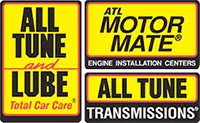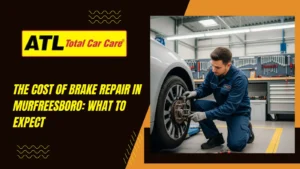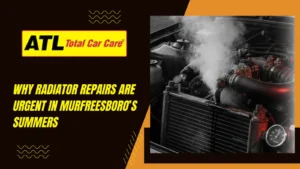When your steering wheel starts feeling heavier than usual or making strange noises, it’s not something to ignore. Power steering problems can sneak up quietly but lead to serious and expensive issues if left unaddressed. For drivers in Murfreesboro, Tennessee, where smooth and reliable driving is essential for daily commutes and weekend trips, recognizing early warning signs can save you both time and money.
This guide explains common power steering problems, how to identify them, and when it’s time to call a professional auto repair service instead of attempting to fix the issue yourself.
1. Understanding How Power Steering Works
Power steering is designed to make turning your vehicle easier and more responsive. Whether your car has a hydraulic power steering system or a more modern electric power steering (EPS) setup, the system works by amplifying the force you apply to the steering wheel.
- Hydraulic Systems rely on pressurized fluid to assist steering.
- Electric Systems use sensors and an electric motor to provide steering assistance.
A malfunction in either type can make your steering unpredictable, stiff, or even dangerous, which is why early intervention is crucial.
2. Common Warning Signs of Power Steering Problems
Recognizing the signs of power steering trouble can help you get repairs before the problem escalates.
a. Steering Feels Heavy or Stiff
One of the earliest signs is when it suddenly takes more effort to turn your wheel. This could mean:
- Low or leaking power steering fluid.
- A failing power steering pump.
- Issues with the electric assist motor (in EPS systems).
In Murfreesboro’s busy traffic, a stiff steering wheel isn’t just inconvenient; it can be unsafe.
b. Whining or Groaning Noises
Hearing odd noises when turning the wheel? That’s often a sign of:
- Air bubbles in the power steering fluid.
- A worn-out pump.
- Fluid contamination or low fluid levels.
Ignoring these sounds can lead to pump failure, which is a much more expensive repair.
c. Leaking Power Steering Fluid
Check for reddish or light brown fluid spots under your car. Leaks typically occur:
- In hoses and seals that have worn out.
- Around the pump or steering rack.
Even a small leak can quickly drain the system and lead to steering failure.

d. Jerky or Delayed Steering Response
If the wheel doesn’t respond smoothly or lags behind your movements, there may be:
- A problem with the steering rack.
- Air or debris in the system.
- Failing components that need immediate attention.
e. Squealing When Starting the Car
If you hear a loud squeal when starting the engine, especially in cold weather, it could be:
- A worn or loose serpentine belt.
- A failing power steering pump pulley.
This noise is a clear signal that it’s time to have your system inspected by a professional.
3. Causes of Power Steering Issues
Power steering systems wear down over time, but some issues are more common than others:
- Fluid Leaks: One of the most frequent causes of power steering problems in older vehicles.
- Worn Components: Pumps, belts, and hoses deteriorate with age and mileage.
- Contaminated Fluid: Dirt or metal shavings can damage the system from the inside.
- Electrical Failures: For EPS systems, failing sensors or motors can compromise steering performance.
- Lack of Maintenance: Ignoring fluid changes and inspections accelerates wear.
In a climate like Murfreesboro’s, with seasonal temperature swings, preventive maintenance is especially important to keep seals and components in good shape.
4. Why DIY Fixes Often Make It Worse
While it might be tempting to top off power steering fluid yourself or tighten a belt, power steering systems are complex. DIY mistakes can lead to:
- Overfilling or using the wrong type of fluid.
- Damaging seals and hoses.
- This causes additional wear on the pump.
Professional auto technicians have diagnostic tools and experience to identify the exact cause and prevent a small issue from turning into a costly breakdown.
5. The Benefits of Professional Power Steering Repair
Choosing expert power steering repair in Murfreesboro ensures:
- Accurate Diagnosis: Pinpointing the exact issue, pump, belt, rack, or fluid.
- Clean System Flushes: Removing air bubbles and contaminants.
- Quality Parts: Using manufacturer-recommended components for durability.
- Extended System Life: Preventing future breakdowns with proper service.
With professional care, your vehicle’s steering stays smooth and responsive, keeping you safer on the road.
6. When to Seek Immediate Help
You should schedule a power steering inspection right away if:
- The steering wheel suddenly becomes hard to turn.
- You hear whining or groaning when steering.
- You notice fluid leaks under your vehicle.
- The wheel jerks or doesn’t respond smoothly.
Delaying repairs can result in pump failure, rack damage, or even total steering loss, which can be dangerous and costly.
7. Preventing Future Power Steering Problems
Preventive maintenance goes a long way in keeping your steering system healthy:
- Check and replace power steering fluid as recommended by your vehicle manufacturer.
- Inspect belts and hoses for wear during routine maintenance.
- Schedule professional inspections annually, especially for high-mileage vehicles.
- Address small leaks and noises early before they worsen.
By being proactive, you’ll avoid unexpected repair bills and keep your car running smoothly.
Get Reliable Power Steering Repair in Murfreesboro

Whether you’re experiencing a stiff steering wheel, leaks, or odd noises, don’t wait until your vehicle becomes unsafe to drive. At our Murfreesboro auto repair shop, we specialize in diagnosing and repairing all types of power steering issues, hydraulic or electric.
Our certified technicians use high-quality parts and proven techniques to restore smooth, responsive steering to your vehicle.
Call to Action
Don’t risk your safety or expensive repairs later. Schedule your power steering inspection today and get back on the road with confidence.





